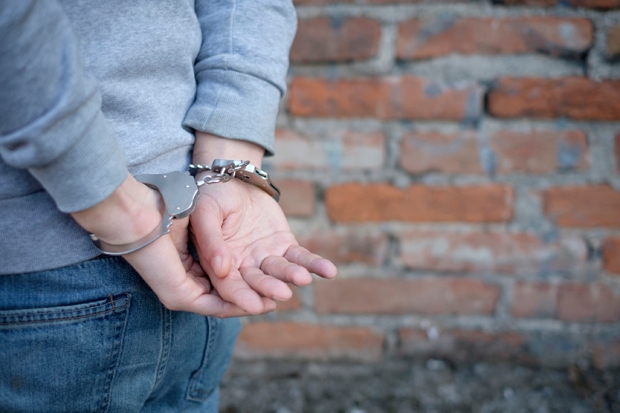A concerted effort is under way to make sure that, when it comes to the European Arrest Warrant, Brexit does not mean Brexit. The Police Federation, for example, will hear no ill spoken of the system. And the same might be said of the Prime Minister, who as home secretary praised it to the skies. As she put it in October 2014, without the European Arrest Warrant, ‘British criminals would be able to hop on to the Eurostar or fly to Spain, safe in the knowledge we wouldn’t be able to get them back to prosecute them.’ Without it, the UK would become ‘a honeypot for all of Europe’s criminals on the run from justice’. The statistics appear to back her.
Between 2010 and 2015, the UK extradited 796 criminals from other countries back here for trial under the European Arrest Warrant. In the same period, 6,514 foreign criminals have, thanks to the European Arrest Warrant, been removed from the UK to face trial abroad.
When something sounds too good to be true, it usually is. The European Arrest Warrant clearly has benefits. But it has a fundamental flaw. It can lead to the incarceration of good people who fall foul of bad regimes.
The key problem with this agreement is the premise on which it is built — that all 28 EU member states have equally robust legal systems and independent judiciaries. They do not. And the consequences of that imbalance are becoming clear.
Last month, the award-winning chief correspondent of Sky News, Stuart Ramsay, reported on alleged gun-running in Romania. It was a shocking story and received much attention.
The details need not concern us. What matters for the purposes of the European Arrest Warrant is that the Romanian government’s response was to say his story was a lie. The country’s Directorate for Combatting Terrorism and Organised Crime asserts that Ramsay and his crew faked the whole report. But this is not the usual tale of allegation followed by denial. The Romanian authorities responded to the story with a formal request to the UK for legal assistance into a criminal investigation. The Sky journalists have been charged with spreading false information to the detriment of Romania’s national security.
I understand from highly placed sources that this is merely the first step and that the Romanians intend issuing a European Arrest Warrant for the extradition of Ramsay and his film crew. Under the terms of the agreement, there are only two grounds for denying that extradition if the paperwork is in order. A court must find that the defendant’s human rights will be breached or that the issue of the warrant is politically motivated.
But European Arrest Warrants are issued by the judiciary of EU member states. By definition, their justice systems are supposedly unimpeachable — hence their membership of the EU.
Most likely the Romanians are using the Sky News case to scare off other journalists. One can see why, because there is much to investigate in Romania. Such as the case of Alexander Adamescu, a German citizen who lives in London and is the son of a Romanian newspaper owner. Romania Libera is a moderate centre-right paper but is a thorn in the side of Romania’s left-wing government. Adamescu’s father has already been imprisoned on trumped-up charges of bribing judges. Now the government is going after the son in the same way — in part to get full control of his father’s assets (he owns an insurance company).
Previously, because he is a German citizen and a London resident, the Romanians would have had to prove they had a credible case against him. Now, thanks to the European Arrest Warrant, they simply have to prove that their paperwork is in order.
No matter how strong Mr Adamescu’s arguments are, or how unconvinced a British court might be of Romania’s, we have to hand him over unless he can prove there are human rights abuses attached to the case or that it is politically motivated.
His hearing is scheduled for November. Should the extradition be granted, the implications are chilling and widespread. The issue is not confined to Romania — or to Bulgaria, another EU member whose legal system is, to put it diplomatically, problematic. In Poland, the governing Law and Justice party has recently announced legislation which would criminalise references to ‘Polish concentration camps’ or ‘Polish death camps’. Claiming that Polish people or the Polish state collaborated with the Nazis over the Holocaust would be punished with up to three years in prison.
My own newspaper, the Jewish Chronicle, has received many complaints from the Polish Embassy and others when we have done just that — based on scholarly work and the facts of geography (Auschwitz is in Poland, occupied or otherwise).
It is one thing receiving a complaint. But under the European Arrest Warrant it is possible — depending on how the legislation is framed — that I could be extradited should the Jewish Chronicle continue to publish facts that the Polish nationalist government wishes to suppress.
The European Arrest Warrant is a betrayal of centuries of British justice. Under this system, decent, honest people can be lifted from the streets of Britain with the British courts unable to intervene. If Brexit really does mean Brexit, we must leave the European Arrest Warrant forthwith.






Comments